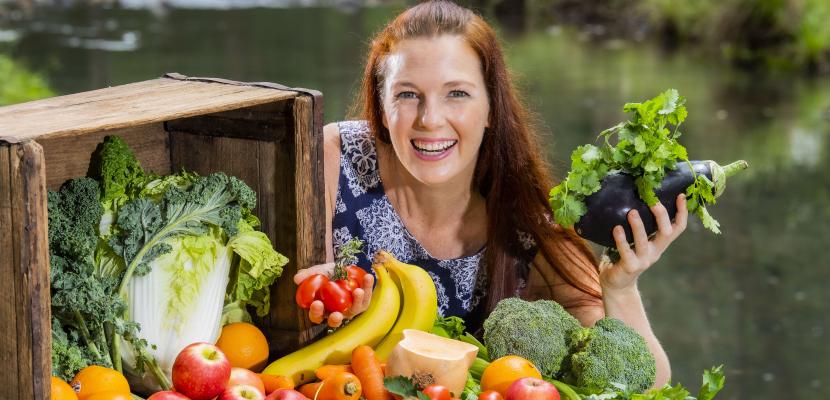
Our moods and food are intimately connected, and a high-quality diet can help protect against depression, according to new research from Bond University.
Dr Megan Lee has been examining the connection between dietary patterns and depression and discovered that eating foods as close to their natural state as possible could be the key to a healthier mind.
Debate has surrounded earlier findings that eating a vegan or vegetarian diet was associated with higher rates of depression, but Dr Lee’s latest study showed the key factor was the quality of the food.
“It’s not about whether your diet contains meat or other animal products, it’s about the quality of the foods you are eating,” she said.
“A high diet quality – a diet including fresh fruit and vegetables, nuts, seeds, whole grains and legumes - was linked to lower depressive symptoms, while those who ate ultra-processed foods, such as meat replacement products and chips and cakes and pastries – whether or not their diet included meat – had a higher rate of depressive symptoms.
“Vegans can have diets that are high in processed foods, just as omnivores can, and the impact is the same. Eating more foods that are less processed and closer to their natural state, whether they contain meat or not, is better for our mental health.
“When you look at the optimal diet for mental health, it’s the same as the optimal diet for good physical health and it’s all tied to ingestion of fibre. Dietary fibre pushes food through our system, and it is massively good for health, it can reduce risk of cancer, diabetes and heart disease, and we’re also now finding that it improves mental health as well.”
Dr Lee said while the research found those with vegan and vegetarian diet did score higher than omnivores on diet quality, this was likely due to consuming larger amounts of plant-based foods than omnivores.
“The more plants you eat, whether you’re an omnivore or a plant-based diet follower, the better your physical and mental health, and I think that’s a key takeaway,” she said.
“Even if you are an omnivore, you can still improve mental health symptoms by eating more plants alongside your meat and reducing processed foods.
“The more processing that a food goes through, the more detrimental to health. And when we talk about processed food we’re really talking about convenience, ultra-processed foods where you don’t recognise what the ingredients are on the label.”
Dr Lee’s research has also found that it’s not just the nutrients in food that affect our mental health. Who we eat with and where, our financial situation and our memories around food can all contribute to our psychological wellbeing.
It’s the first research of its type to explore how ‘meaning’ and social context are attached to food choices and how this might impact mood and mental health.
Analysing the response from 50 participants in a series of focus groups, the research found their moods were affected by the context they were in – who they ate with and where they were – along with the positive feelings associated with preparing or eating foods from their childhood.
The economics of eating also had an impact, with participants noting that food insecurity, time, and financial constraints influenced their food choices, indirectly impacting their mood and mental wellbeing.
Megan Lee will be presenting her research as part of Research Week 2023 on Thursday, October 12 at 9am. Register for the event here.